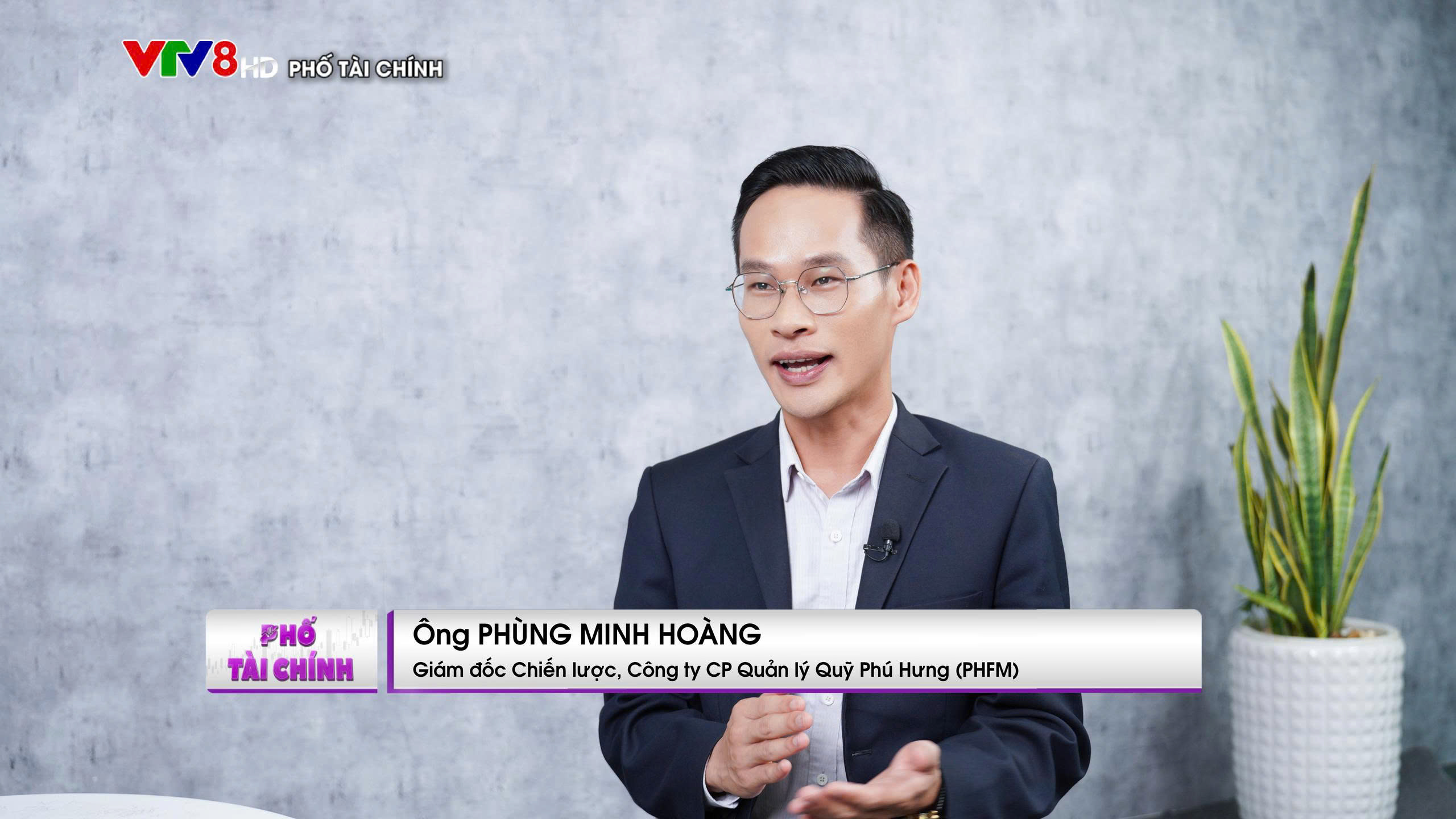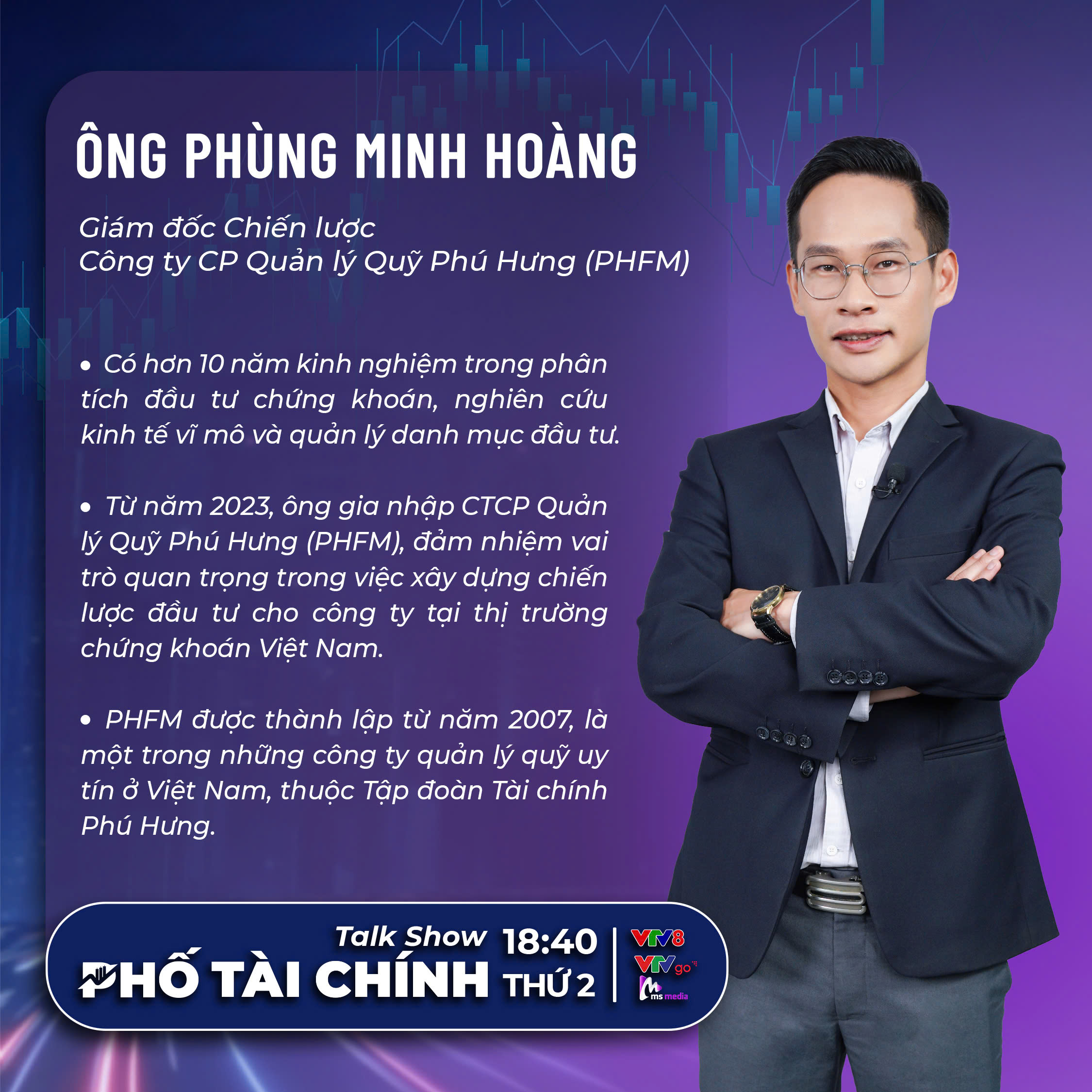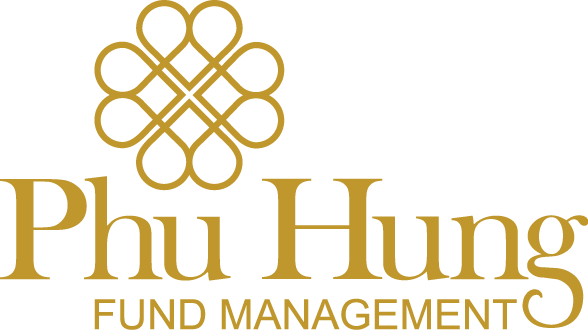
Global cash flows are shifting
In the context of continuous fluctuations in global stock markets, especially those that are greatly affected by US President Donald Trump’s tariff policy, investors have been witnessing global cash flows shifting after a long time of accumulating to the US market. The data shows that global investors are currently tending to restructure their portfolios, especially the net buying trend in Asian markets is starting to return. Meanwhile, in the Vietnamese stock market, foreign investors also began to net buy more from July and are expected to improve in the near future. Are the moves to restructure the cash flows of global investors a sign that it is time for global cash flows to shift to emerging markets in the future?

At The Finance Street talk show on VTV8, Mr. Phung Minh Hoang, Strategy Director of Phu Hung Fund Management Joint Stock Company (PHFM) said: “First, let’s look back at the history in the past 5 years or 6 years, global stock investment cash flows tend to withdraw from emerging markets to return to developed markets, especially to the US market. The reason for this is China’s economic growth, which accounts for the largest share of the basket of emerging markets, which has slowed down, and the strengthening trend of the dollar over the years. So, emerging stock markets have performed less efficiently than developed markets in those years.
However, global stock investment cash flows are showing signs of reversal. According to our observations, foreign investors tend to net sell in developed markets such as the US and return to emerging markets, especially China. This cash flow also tends to spread to other emerging markets such as Taiwan (China), India and other Southeast Asian countries. This trend has become more pronounced in the last 1-2 months, after China and Vietnam reached a preliminary trade agreement with the US. Major financial institutions in the world such as Goldman Sachs and JP Morgan have also raised their recommendations to increase the proportion of investment and have a positive view on emerging markets, including the Vietnamese market.”
According to Strategy Director of Phu Hung Fund Management Joint Stock Company (PHFM), to explain this structural change of global stock investment cash flows, there are 3 main reasons:
Firstly, in terms of valuation, emerging markets currently have a projected P/E of just over 12 times, significantly lower than about 19 times in developed markets.
Second, in terms of growth prospects, developed markets and specifically the US, the short-term economic outlook is not very positive due to risk concerns from the tariff policy imposed by President Donald Trump, as well as a decline in earnings expectations of listed companies in the AI and technology industry. When the market realizes that the US is unlikely to have a monopoly in this field and risks facing strong competition from China, especially after the launch of DeepSeek.
The third factor driving the strong reversal of cash flows is the weakening of the US dollar – the factor with the greatest impact. Currently, the DXY index has fallen by more than 10% in the first half of the year – the deepest decline in decades. When the dollar depreciates sharply, investments and assets in the US also lose value when converted to other currencies. Therefore, large global investment funds have had to restructure their asset portfolios in the US, including selling off US stocks to mitigate this risk. At the same time, investors are increasingly buying assets in other countries, including emerging stock markets with more attractive valuations.

“For the three reasons stated, the drivers of net selling cash flows from developed markets such as the US to emerging markets are structural and have a medium-term impact. Therefore, I think the trend of net selling of US assets, including stocks, to move to other markets, especially emerging and marginal stock markets, will continue in the near term.
However, the strength or weakness of this trend depends heavily on the Trump administration’s uncertain trade policies, the outcome of trade agreements between the United States and emerging countries, as well as the ability of the United States to narrow its budget deficit. These factors will affect the upcoming revaluation of the US dollar,” said Mr. Phung Minh Hoang.
Foreign investors turn to buy in the Vietnamese market

Particularly in Vietnam, since July, we have seen stronger foreign cash inflows, which has had a positive impact on the market. According to Mr. Phung Minh Hoang, there are two prominent reasons explaining this trend. First, Vietnam has reached a preliminary trade agreement with the US on the reciprocal tariff rate. Secondly, the market is expecting FTSE Russell to upgrade Vietnam to the emerging market group in the review at the end of this year or early next year. In addition, Vietnam is also benefiting from the trend of shifting capital flows globally to emerging markets.
“According to our observation, foreign cash flows are mainly purchased through P-Notes (which are derivative financial instruments issued by large institutions to foreign investors) of some ETFs, and investors focus on net buying high-liquidity blue-chip stocks. This is an extremely positive signal, especially after the net selling of foreign investors in recent years,” Mr. Phung Minh Hoang assessed.
Forecasting in the coming time about global cash flows into the Vietnamese stock market, the Chief Strategy Officer of Phu Hung Fund Management Joint Stock Company (PHFM) said that looking back at the statistics of the last 5 years, foreign investors have net sold about 5-6 billion USD in the Vietnamese stock market. a very significant number. Meanwhile, the net buying value in July only reached about 500 million USD, still quite modest. The trend of net buying again in emerging markets has only just begun, so Vietnam’s stock market will continue to benefit from this momentum. In addition, if the FTSE upgrades the Vietnamese market to the emerging market group in the near future, it is estimated that it can attract an additional 2-3 billion USD.
Regarding the long-term outlook, Mr. Phung Minh Hoang said that Vietnam’s stock market is still very attractive to foreign investors. The economy is in the early stages of a cycle of recovery and growth, especially the government is having unprecedented innovative policies, such as promoting scientific and technological development, focusing on private economic development, and the Government has also set a double-digit growth target. These policies will create a premise for the country to enter the era of growth, opening up many opportunities for domestic businesses to make a strong breakthrough.
Source: vtv.vn
